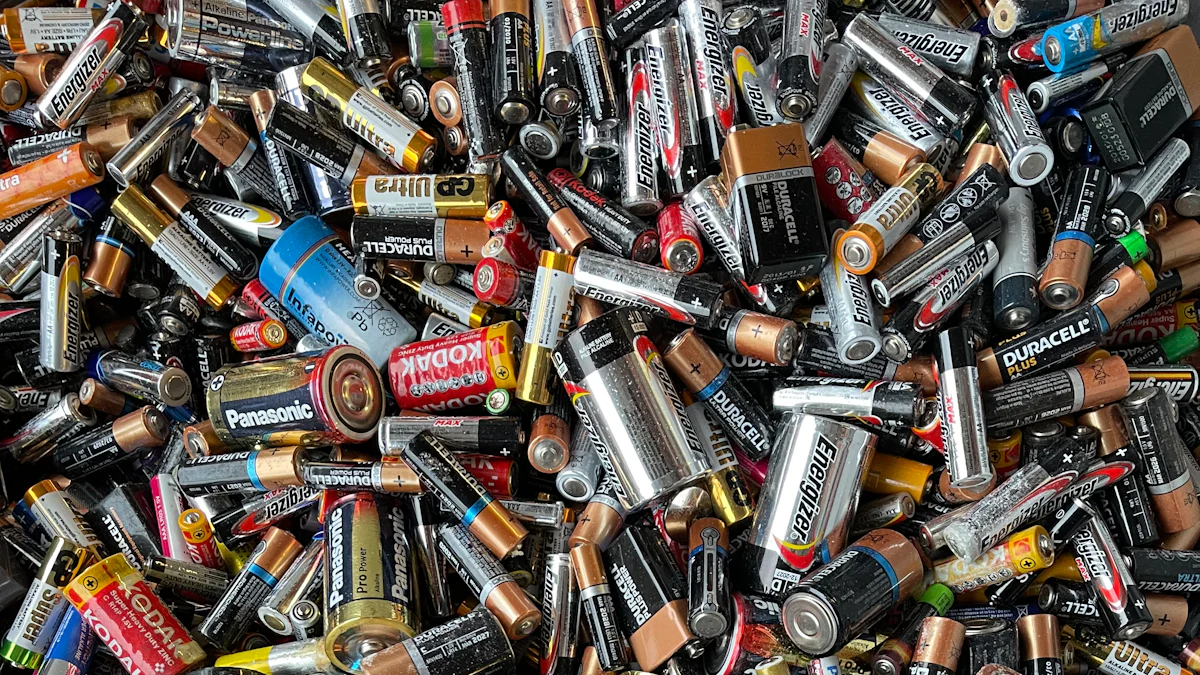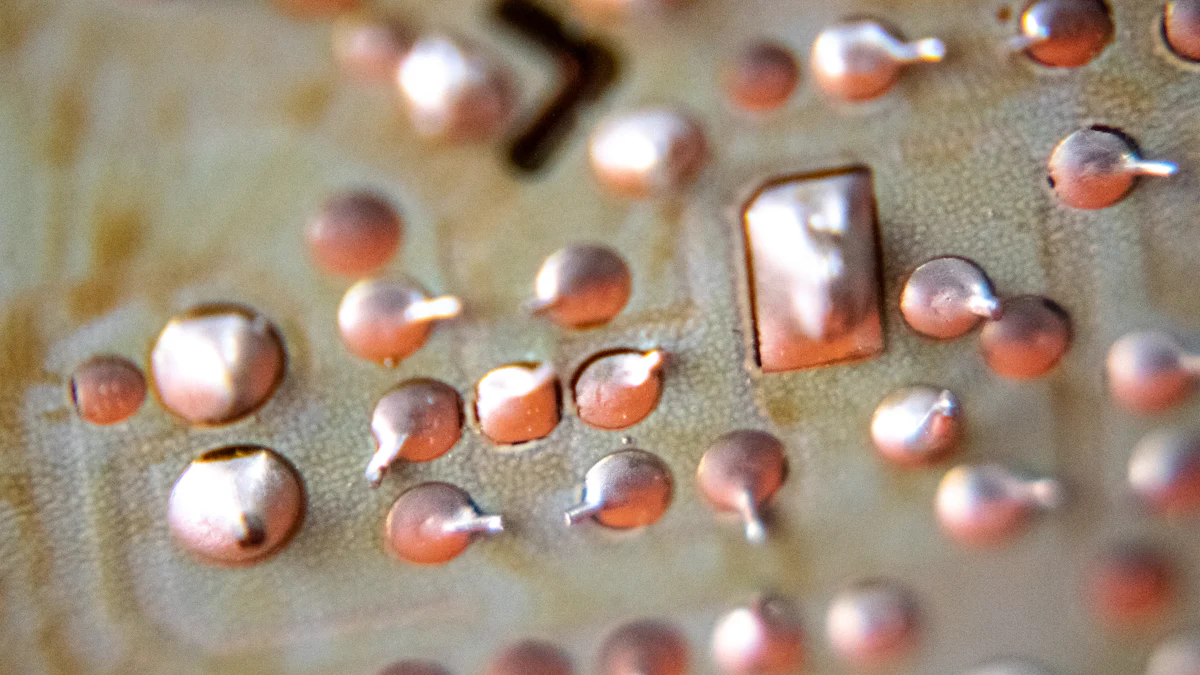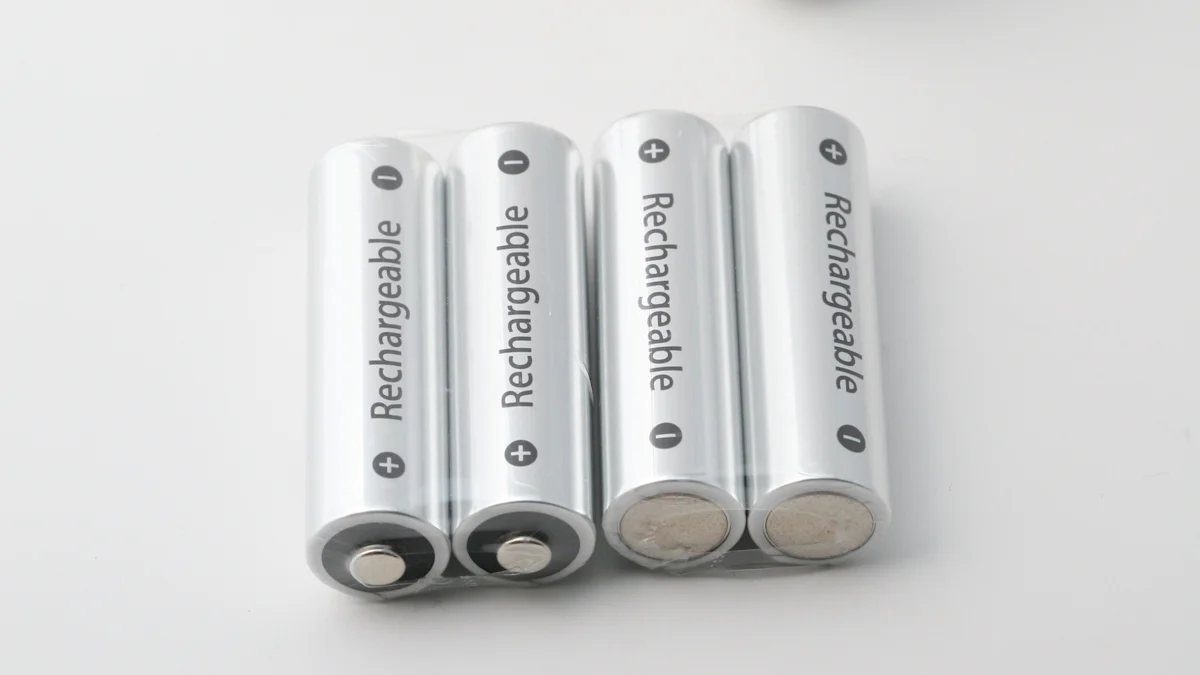
Choosing the right button batteries plays a vital role in ensuring devices perform efficiently. I have seen how the wrong battery can lead to poor performance or even damage. Bulk purchasing adds another layer of complexity. Buyers must consider factors like battery codes, chemistry types, and dimensions. For example, Alkaline Button Cell batteries are cost-effective but may not last as long as lithium options. Supplier reliability is equally important. A trusted supplier ensures quality and avoids counterfeits, which can save both time and money when buying button battery bulk.
Key Takeaways
- Understand battery codes: Familiarize yourself with battery codes like CR2032 to ensure compatibility with your devices and avoid costly mistakes.
- Choose the right chemistry: Select the appropriate battery chemistry (lithium, alkaline, silver oxide, or rechargeable) based on your device’s power needs for optimal performance.
- Check dimensions: Always verify the size codes of batteries to ensure a perfect fit in your devices, preventing performance issues.
- Prioritize quality: Buy from trusted suppliers to avoid counterfeit batteries and ensure reliable performance for your devices.
- Manage storage effectively: Store batteries in a cool, dry place and organize them by expiration dates to maximize their shelf life.
- Create a checklist: Develop a reference list of required battery codes and sizes for your devices to streamline the bulk purchasing process.
- Test before bulk buying: Consider testing a small batch of batteries to confirm compatibility and quality before committing to larger orders.
Understanding Battery Codes in Button Battery Bulk

Decoding Battery Codes
Battery codes can seem confusing at first, but they hold essential information about the battery’s specifications. Each code represents details like size, chemistry, and voltage. For example, a common button battery code like CR2032 breaks down into specific meanings. The “C” indicates the battery’s chemistry, which is lithium manganese dioxide. The “R” stands for its round shape. The numbers “20″ and “32″ refer to its dimensions, with “20″ representing the diameter in millimeters and “32″ indicating the thickness in tenths of a millimeter.
I always recommend checking these codes carefully before purchasing. They ensure that the battery fits your device and meets its power requirements. When buying in bulk, understanding these codes becomes even more critical. A single mismatch can lead to wasted resources and non-functional devices. I’ve seen how decoding these codes can save time and prevent unnecessary frustration.
Why Battery Codes Are Crucial for Bulk Purchases
When purchasing button battery bulk, accuracy matters more than ever. Bulk orders often involve large quantities, so even a small mistake in selecting the right battery can result in significant losses. Battery codes act as a guide to ensure compatibility with your devices. For instance, using a battery with the wrong voltage can damage your equipment or cause it to malfunction.
I’ve learned that matching the battery code to the device’s requirements guarantees optimal performance. This step also helps avoid compatibility issues. For businesses or individuals who rely on battery-powered devices daily, this accuracy ensures smooth operations. Additionally, bulk purchases often come with cost benefits, but only if the batteries are usable. Misreading or ignoring battery codes can negate these savings.
To make the process easier, I suggest creating a checklist of the required battery codes for your devices. This practice minimizes errors and ensures that every battery in your bulk order serves its purpose effectively.
Exploring Battery Chemistries for Bulk Buying
Overview of Common Chemistries
When buying button batteries in bulk, understanding the different chemistries is essential. Each type of battery chemistry offers unique benefits and limitations. I have worked with several types, and I’ve seen how choosing the right chemistry can make a big difference in performance and cost-effectiveness.
The most common chemistries include lithium, alkaline, and silver oxide. Lithium batteries stand out for their high energy density and long shelf life. They deliver a nominal voltage of around 3.0 volts, making them ideal for high-drain devices like medical equipment or advanced electronics. Alkaline batteries, on the other hand, are more affordable and work well for low-drain devices. Silver oxide batteries provide stable voltage output, which makes them suitable for precision devices like watches or hearing aids.
Rechargeable options, such as Lithium-ion (Li-ion) and Nickel-Metal Hydride (NiMH) batteries, are also worth considering. These batteries offer excellent energy density and longevity. I’ve noticed that NiMH batteries hold more energy than alkaline ones, allowing devices to run longer. Li-ion batteries perform even better, especially in extreme temperatures, and they lose less charge when not in use.
Pros and Cons of Each Chemistry for Bulk Use
Each battery chemistry has its strengths and weaknesses, especially when purchasing in bulk. I always weigh these factors carefully to ensure the best value and performance.
-
Lithium Batteries
- Pros:
- High energy density allows them to store more energy than alkaline batteries.
- Long shelf life ensures they remain functional for years.
- Perform well in extreme temperatures, both hot and cold.
- Cons:
- Higher cost compared to alkaline or silver oxide batteries.
- Not always necessary for low-drain devices.
- Pros:
-
Alkaline Batteries
- Pros:
- Affordable and widely available.
- Suitable for low-drain devices like remote controls or clocks.
- Cons:
- Lower energy density compared to lithium batteries.
- Shorter shelf life and less effective in high-drain devices.
- Pros:
-
Silver Oxide Batteries
- Pros:
- Stable voltage output ensures consistent performance.
- Ideal for precision devices requiring accuracy.
- Cons:
- Limited availability compared to lithium or alkaline batteries.
- Higher cost for bulk purchases.
- Pros:
-
Rechargeable Batteries (Li-ion and NiMH)
- Pros:
- Cost-effective in the long run due to reusability.
- Environmentally friendly compared to single-use batteries.
- NiMH batteries hold more energy, while Li-ion batteries excel in retaining charge.
- Cons:
- Higher upfront cost.
- Require compatible chargers, adding to the initial investment.
- Pros:
When purchasing button battery bulk, I recommend matching the chemistry to your specific needs. For high-drain devices, lithium batteries are worth the investment. For low-drain devices, alkaline batteries provide a cost-effective solution. Rechargeable options work best for frequent use, offering long-term savings and environmental benefits.
Ensuring Dimensions and Compatibility in Button Battery Bulk

Interpreting Size Codes for Bulk Orders
Understanding size codes is essential when purchasing button batteries in bulk. Each size code provides specific information about the battery’s dimensions, which include diameter and thickness. For example, a battery labeled CR2032 has a diameter of 20 millimeters and a thickness of 3.2 millimeters. These measurements ensure the battery fits perfectly into your device.
I always recommend checking the size codes of your current batteries before placing a bulk order. This step eliminates the risk of ordering batteries that are too large or too small. Devices rely on precise fits to function correctly. A mismatch in size can lead to poor contact, which affects performance or even prevents the device from working.
To simplify the process, I suggest creating a reference list of the size codes for all the devices you use. This list acts as a quick guide when selecting batteries for bulk orders. It saves time and ensures accuracy. Bulk purchases often involve large quantities, so getting the size right from the start avoids unnecessary returns or wasted resources.
Verifying Device Compatibility Before Bulk Purchases
Device compatibility is another critical factor when buying button battery bulk. Each device has specific power requirements, and using the wrong battery can cause malfunctions or damage. I always check the device manual or the old battery’s specifications to confirm compatibility. This step ensures the new batteries meet the voltage and capacity needs of the device.
For instance, some devices require high-drain batteries, while others work well with low-drain options. High-drain devices, like medical equipment, benefit from lithium batteries due to their high energy density. Low-drain devices, such as clocks, perform efficiently with alkaline batteries. Matching the battery chemistry and size to the device guarantees optimal performance.
I also recommend testing a small batch of batteries before committing to a large order. This practice helps verify compatibility and quality. Reliable suppliers often provide detailed product descriptions, which include compatibility information. Choosing a trusted supplier reduces the risk of receiving counterfeit or substandard products.
By focusing on size codes and device compatibility, I ensure every battery in my bulk order serves its purpose effectively. These steps save time, money, and effort, making the bulk purchasing process smooth and efficient.
Practical Tips for Buying Button Battery Bulk
Ensuring Quality and Avoiding Counterfeits
I always prioritize quality when purchasing button battery bulk. High-quality batteries ensure reliable performance and protect devices from potential damage. To avoid counterfeits, I carefully examine the packaging and labeling. Authentic batteries usually have clear, professional packaging with accurate information about the product. Counterfeit products often display spelling errors or poorly printed labels.
I also rely on trusted suppliers with a proven track record. As one expert in battery manufacturing stated:
“Their commitment to safety is evident in their rigorous quality control processes.”
This level of dedication reassures me that I am receiving genuine, high-performing batteries. Additionally, I test a small sample from the bulk order before using them extensively. This step helps confirm the quality and compatibility of the batteries with my devices.
Storage and Shelf Life Management
Proper storage plays a crucial role in maintaining the shelf life of button batteries. I store my batteries in a cool, dry place away from direct sunlight and moisture. Extreme temperatures can reduce battery performance or even cause leakage. I also keep them in their original packaging until use. This prevents accidental short circuits and preserves their charge.
To manage shelf life effectively, I check the expiration dates on the packaging. Batteries lose efficiency over time, so I use the oldest ones first. For bulk purchases, I organize the batteries by their expiration dates. This system ensures that none go to waste. Rechargeable batteries require extra care. I charge them periodically to maintain their capacity and prevent deep discharge.
Selecting a Reliable Supplier for Bulk Orders
Choosing the right supplier is essential when buying button battery bulk. A reliable supplier guarantees quality and timely delivery. I research vendors thoroughly before placing an order. As one expert in battery purchasing advised:
“Research and select a reputable vendor when buying batteries in bulk. Look for suppliers with a track record of providing high-quality products, reliable customer service, and prompt delivery.”
I look for suppliers with positive reviews and transparent policies. Clear communication and responsive customer service are also important. These qualities indicate that the supplier values their customers and stands behind their products. I avoid suppliers with unclear return policies or inconsistent product descriptions.
Building a long-term relationship with a trusted supplier has been beneficial for me. It simplifies the purchasing process and ensures consistent quality. I recommend starting with smaller orders to evaluate the supplier’s reliability before committing to larger bulk purchases.
Understanding battery codes, chemistries, and dimensions is essential when buying button battery bulk. These factors ensure compatibility, efficient storage, and cost management. I always prioritize quality assurance and choose reliable suppliers to avoid counterfeits and ensure long-term performance. Balancing cost, safety, and reliability has helped me make informed decisions. By applying these insights, you can simplify bulk purchases and maximize their value. Take the time to evaluate your needs and invest in the right options for a seamless and cost-effective experience.
FAQ
What is the difference between button cells and coin batteries?
Button cells and coin batteries are often used interchangeably, but they have slight differences. Button cells are typically smaller and used in devices like watches or hearing aids. Coin batteries, on the other hand, are slightly larger and often power devices like calculators or car remotes. I always check the device requirements to ensure I choose the correct type.
How do I identify the right button battery for my device?
I look at the old battery or the device manual to find the required specifications. The battery code, such as CR2032, provides key details about size, chemistry, and voltage. This code ensures the battery fits and functions properly in the device.
Can I mix different chemistries in bulk purchases?
I avoid mixing chemistries when buying in bulk. Each chemistry, like lithium or alkaline, has unique properties and performance levels. Mixing them can lead to inconsistent results or even damage devices. I recommend sticking to one chemistry type per bulk order.
How long do button batteries last in storage?
Button batteries have varying shelf lives depending on their chemistry. Lithium batteries can last up to 10 years, while alkaline ones may last 3-5 years. I store them in a cool, dry place to maximize their lifespan and always check expiration dates before use.
Are rechargeable button batteries worth it?
Rechargeable button batteries work well for frequent use. They reduce waste and save money over time. I use them for devices I rely on daily, like medical equipment or cameras. However, they require compatible chargers, so I consider this when deciding.
How can I avoid counterfeit batteries?
I always buy from trusted suppliers with positive reviews. Authentic batteries have clear, professional packaging and accurate labeling. Counterfeit products often have spelling errors or poor-quality printing. Testing a small batch before committing to a large order also helps me ensure quality.
What should I do if my device doesn’t work after replacing the battery?
If a device doesn’t work after replacing the battery, I first check the battery’s orientation. Devices often have specific polarity requirements. I also ensure the battery code matches the device specifications. If the issue persists, I test the battery with another device to rule out defects.
How do I safely store button batteries?
I keep button batteries in their original packaging until use. This prevents accidental short circuits. I store them in a cool, dry place away from sunlight and moisture. For added safety, I keep them out of reach of children and pets.
Can I recycle button batteries?
Yes, many button batteries are recyclable. I take used batteries to designated recycling centers or collection points. Recycling helps reduce environmental impact and supports sustainable practices. I encourage others to do the same whenever possible.
What is the best way to manage bulk battery purchases?
I organize bulk purchases by size codes and expiration dates. This system ensures I use older batteries first and avoid waste. Testing a small sample from the bulk order helps me verify quality and compatibility. Building a relationship with a reliable supplier simplifies the process and ensures consistent quality.
Post time: Dec-25-2024




